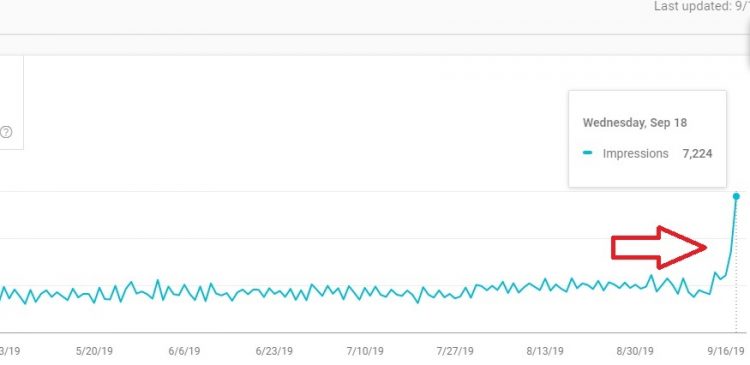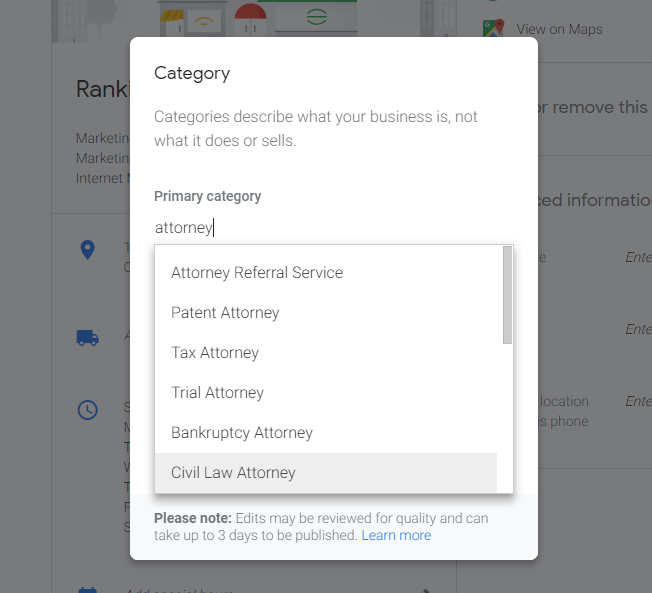6 Unique SEO Tactics Attorneys Need to Be Using

After creating this article, I’ve noticed a fundamental addition. So I have updated the page with a 7th Necessary update.
Thanks to search engines like Google and the surge of online review sites, it is easier than ever for potential clients to research and review dozens of your competitors in the blink of an eye – even if they have been referred to you by a friend.
Search results are paramount for attracting qualified clients, and if you are not able to rank well and connect with the right audience in the search engine results pages (SERPs), a lot of valuable clients might walk through your competitors’ doors instead of yours.
That is the last thing you want to happen, and with an informed SEO strategy in place, you can ensure that it does not.
In this post, I will discuss six organic SEO strategies that will help you rank well in searches related to your firm’s specialty.
1. Target Specialized Keywords
Targeting specialized keywords is a crucial strategy for helping you surface in search results for specific queries by potential clients. And when I say “specialized”, I am referring to a few different keyword strategies, including:
- Target location-specific keywords:Those “near me” and other location-based searches can be a powerful force in driving web traffic, especially with so many prospects using mobile devices and wanting to work with someone geographically close to them. Consider targeting location-specific keywords, like “Seattle business attorney”.
- Target keywords related to your practice area:Most people will not search Google for simply “lawyers”. They are far more likely to specify a personal injury lawyer, a divorce lawyer, or an estate lawyer. Make sure you are targeting keywords that are focused on your specialization.
- Target purchase-intent keywords:Purchase- or high-intent keywords are those that users type in the search box when they are furthest along in the buying cycle and actively looking to reach out to someone soon. High-intent keywords might look like “best worker compensation attorney in Denver”, while low-intent keywords might be “what does a worker compensation attorney do?”. By targeting (and ranking for) high-intent keywords, you are more likely to convert potential clients who are ready to immediately contact an attorney.
If you are unsure about the keywords to target, you can use SEMrush’s keyword magic tool for a spectrum of insights. It will show you a large number of keyword suggestions related to your search term, including search volumes, competition, and CPC (cost per click) paid search values. Combining the tips above with the insights gained from the SEMrush keyword tool, particularly those keywords that have high search volumes and relatively low competition, should give you some viable candidates to target.

Source: SEMrush Keyword Magic Tool
2. Use Content to Boost SEO
Quality content can bolster your credibility and build relationships with readers, as well as give you an SEO boost. Optimized content that demonstrates your expertise in your given legal specialty can translate into more of your site’s pages and keywords ranking well in search results, helping you to connect with more potential clients.
Blog content and FAQ pages (especially with Google now supporting structured data for Q&A pages) are great opportunities not only for incorporating general question-based keywords, but high-intent keywords for those who are further along in the buying stage and trying to get some answers. (I’ll be discussing structured data in more detail in strategy number five.)
A general query such as “what is a family lawyer?” may not be a high-intent search, but if your content provides a direct answer to the question, it could possibly give your site an SEO advantage via a featured snippet at the very top of the search results page. When combined with content discussing “what makes for a good family lawyer” – which is more high-intent – you can create a strong, diverse content portfolio to help you connect with people at all stages of the buying/sales funnel.
Content that addresses such common questions also presents an opportunity to rank for those long-tail keywords that you might not want to necessarily include on your main site pages. If you unsure of where to start, SEMrush’s keyword tool has a “question” filter that shows you the questions that people are asking about your area of specialty.

SEMrush Keyword Magic Tool Question Filter
3. Choose a Niche Category On Google My Business
Setting up a Google My Business (GMB) page allows you to list your firm as a local business so that it surfaces in more local search results. Snippets of information, such as reviews, also appear there.
When it comes to GMB listings, most law firms make one big mistake: the category they choose.

Source: Screenshot from Google My Business
A lot of individuals will categorize themselves generically as a “lawyer” or an “attorney”. But it makes far more sense to categorize your practice based on your niche, meaning your specific area of expertise (e.g., personal injury, family law, estate law, etc). By qualifying your firm based on your specialty, it is more likely to surface in local search results, giving you a better chance to attract potential clients. You will also be more likely to be visible in broader search results by qualified prospective clients, which is a big win too.
4. Prioritize Link Building
Acquiring links from heavily trafficked, top-domain sites can do wonders for boosting your search ranking.
Building backlinks from authoritative sites is a time-tested SEO strategy that serves to not only drive qualified referral traffic to your site, but also informs Google that it is credible and trusted which can help with your site’s ranking.
Content marketing can be a strong way to get more links to your site, especially if you are able to create valuable, original content that people find helpful. Guest posting opens some doors, as you are often able to reach your target audience on someone else’s high-traffic site and then add a link back to yours.
You can also be an expert source for people to quote in other articles; depending on the type of article, this could earn you a link back to your site.
Another link-building option is to submit your site to legal directories. There are more than 100 reputable online directories for law firms. In addition to potentially finding more clients through them, you will bolster your backlink profile.
5. Use Schema Markup to Stand Out
Schema markup (the structured data referred to in SEO strategy number two) allows you to provide Google with rich snippets of information that will be more readily displayed on its SERPs. Such visibility is a good way to stand out, as well as give potential clients more information about who you are and what you do.
Some options of schema markup for law firms include:
- Legal Services markup: This type of schema identifies law firms as providing legal services.
- Review markup: This allows attorneys to showcase reviews in the form of a star rating accompanied by an author.
- Name, Address, and Phone Number markup: This can help your contact information be more visible, as search engines can more easily identify it.
As an example, here is how an attorney’s review appears in search results using schema markup:

Schema markup can be difficult to implement, but there are schema generators like this one that can make the process a lot easier. Attorneys using WordPress can also leverage one of the many plugins available that will generate schema markup for them.
6. Get More Reviews
Reviews carry a lot of weight in search results. Not only will they influence users who are seeing the search results, but they can actually help you rank higher in local SERPs. According to Moz’s 2018 local search survey, review signals were consistently in the top ten factors that affected Google My Business search rankings.
Disclaimer: when you’re trying to get more reviews, you should first consult your state bar guidelines. Different states will have different regulations, and not all bar associations allow for it.
Here are some tips for a successful review campaign:
- Give your clients options: Don’t ask everyone to leave a review on Google (via GMB). Instead, consider giving them options among top platforms as well as legal-specific platforms like Avvo. Ideally, you want to bolster reviews in all of these places; realistically, giving clients choices helps to ensure they will leave a review on at least one site.
- Provide a template: Not everyone is an avid reviewer nor is everyone familiar with how to leave a review on leading platforms. Create a template that is easy for them to follow and discloses a time frame for how long it will take them to do so.
- Post reviews on your site: If someone leaves you a great review online, ask their permission to post it on your website. Testimonials are great social proof and if visitors make it to your site, a good review may be what they need to finally pick up the phone, call, and hire you.
- Ask for reviews at key moments: Including links all over the place with calls to action for leaving reviews is a tactic people use – however, you may get better results by strategically asking your clients for reviews. (For example, you do not want someone who has had a bad experience to notice a review solicitation in an email signature). In other words, choose the times you ask for reviews wisely, such as right after you have won a case.
7. Use a website with Mass-Pages for in order to deploy the most keywords visible on SERPs.
SEOCOW is different because we make enterprise grade SEO services available even with smaller budgets.
We can easily attain first page listings on google for many keywords using longtail keywords or keyphrases by using a proprietary application to deploy an excel spreadsheet to a wordpress database. We can help you submit 20,000 pages to the SERP for absolutely amazing results.
Conclusion
Whether you are trying to build your law firm or maintain its success, search engine optimization should be an essential part of your marketing strategy. If you are able to optimize your site properly, you should be able to connect with prospective clients in all stages of the buying cycle to engage them and establish relationships. And remember, If you don’t, your competitor will.
